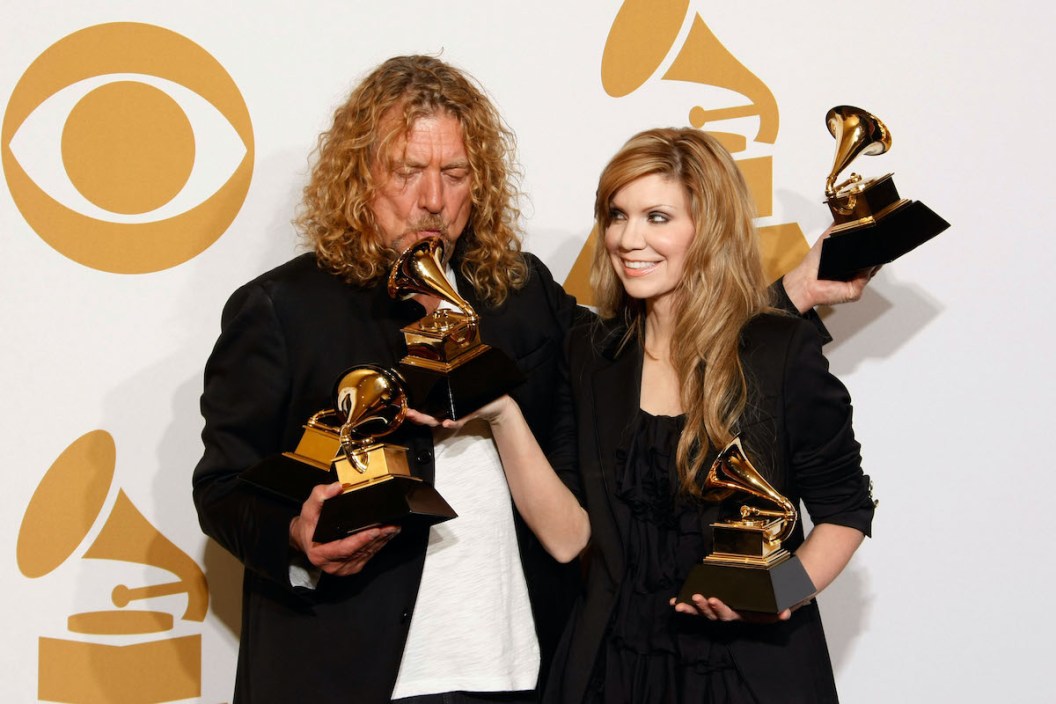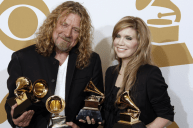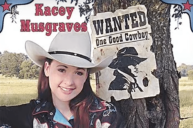Raising Sand (Rounder Records), a 2008 collaboration between rock god Robert Plant and bluegrass giant Alison Krauss, dominated the 51st annual Grammy Awards. It claimed five trophies that night, including all-genre prize Album of the Year.
The most crucial rock-meets-roots album of the 21st century also won Best Contemporary Folk/Americana Album, Record of the Year (for "Please Read the Letter"), Best Pop Collaboration with Vocals (for "Rich Woman") and Best Country Collaboration with Vocals (for "Killing the Blues"). To put Raising Sand's big night in perspective, Krauss shared more Grammy awards (five) in one fell swoop than the likes of Waylon Jennings and Merle Haggard won across their respective careers (both are two-time winners, not counting Grammy Hall of Fame or lifetime achievement honors) .
A tandem of all-time greats in popular music had a secret weapon in the form of producer T Bone Burnett, who played acoustic and electric guitar and six-string bass on the album and had a hand in selecting its track listing.
Raising Sand's long-awaited follow-up, Raise the Roof, arrived in 2021.
The Songs on Robert Plant and Alison Krauss: Raising Sand, Ranked
13. "Trampled Rose"
Krauss sounds downright haunting on "Trampled Rose," a then-new song first released in 2004 by its co-writer (along with Kathleen Brennan), roots-minded troubadour Tom Waits.
12. "Sister Rosetta Goes Before Us"
Krauss' gorgeous voice takes center-stage on this, the first recording of a Sam Phillips original named after a prime mover in the development of Plant's bread and butter: guitar-driven and blues-influenced rock music.
11. "Your Long Journey"
The album's final track culls the catalog of Rosa Lee and Doc Watson for a weeper about a loved one's heavenly homecoming. Plant and Krauss' version doesn't stray from the original's folk formula. Speaking of folk, that's the great Mike Seeger on autoharp.
10. "Nothin'"
After its heavy-hitting opening, Townes Van Zandt original "Nothin'" settles somewhere between a swampy, dreary blues number and an electrified and distorted take on bluegrass and its old-time influences.
9. "Polly Come Home"
Byrds co-founder Gene Clark wrote this one and first recorded it with banjo picker and former Andy Griffith Show regular Doug Dillard. In the hands of Plant, Krauss, Burnett and their supporting cast, it becomes a sparse, poetic slow burner.
8. "Through the Morning, Through the Night"
A second Clark composition from his time in Dillard & Clark serves as a vocal showpiece for Krauss (as well as a shining moment for world-class pedal steel player Greg Leisz).
7. "Please Read the Letter"
This one was sure to suit Plant, considering he co-wrote it with fellow Led Zeppelin alum Jimmy Page (as well as Michael Lee and Charlie Jones) for their collaborative 1998 album Welcome to Clarksdale. Turns out it was in Krauss' wheelhouse, as well.
6. "Fortune Teller"
This cover of a song written by Allen Toussaint, the 20th century master behind Glen Campbell's "Southern Nights," digs further into the roots of popular music. It's Plant's strongest solo vocal performance on the album.
5. "Rich Woman"
Dorothy LaBostrie, best known as the co-writer of Little Richard's "Tutti Frutti," penned this R&B gem with its original performer, McKinley Millet. This version puts blues-rock and psychedelic influences from the 1960s into a musical blender, creating far-out familiarity on the album's opening track.
4. "Stick With Me Baby"
Mel Tillis penned this 1960 selection from The Everly Brothers. Naturally, a song written by one of the finest wordsmiths to ever call Nashville home and suited for the Everly siblings' blood harmonies sets up well for a lovely, infatuation-themed duet performance.
3. "Let Your Loss Be Your Lesson"
This cover of R&B and electric blues great Little Milton captures what made both Krauss and Led Zeppelin legends: her might and versatility as a vocalist and the band's knack for adding an infectiously catchy blues-rock spin to classic licks.
2. "Gone Gone Gone (Done Moved On)"
Early rock 'n' roll and its love child with country music, rockabilly, flavor this dance party-starting ode to an important force in the development of roots-based popular music, The Everly Brothers.
1. "Killing the Blues"
The sound of hardcore country, as guided by Leisz, turned an often-covered amalgam of American roots music (you might've known it already through John Prine) into the perfect canvas for Plant and Krauss' vocal brush strokes.
Leisz is joined throughout the album by Jay Bellerose (drums), Patrick Warren (keyboards, pump organ, piano), Dennis Crouch (upright bass), Riley Baugus (banjo), Marc Ribot (guitar, banjo, dobro) and folk great Norman Blake (acoustic guitar).




